If God is all-loving, is it a contradiction then when God says that Jacob he loved and Esau he hated as we see in Malakai1? Isn’t this a contradiction?
I don't believe it’s a contradiction for two reasons, and here's the first: When God says Esau He hated, He's actually not referring to the individual Esau but rather to the nation that sprung from his descendants. The reason why God was opposed to Edom is because Edom was opposed to Israel and to God's promises. So in reality, God’s not saying He hates the person Esau but rather the nation of Edom that sprung from his people.
The second reason why this is not a contradiction is because oftentimes an English word that we read in the Bible carries with it a connotation that is not necessarily expressed in the original language – Greek, Hebrew, or Aramaic. Take, for example, the word “mystery” that we often read in the English Bible. When we think of the word “mystery,” often it has the connotation of being something that's incomprehensible or unexplainable. But when you look at the original word used in the Bible for mystery, it doesn't have the same connotation. In fact, oftentimes mystery simply means something that is not known by man but that is later revealed by God through special revelation. So you see here that the English word for mystery has a different connotation than the original biblical word.
The same is true with the word “hate.” Often, when we use the word hate in English, it carries with it a connotation of antipathy or vitriolic anger of disgust, but this is not the connotation that’s implied with the biblical word. Rather, the word hate, biblically speaking, is not giving special privilege or protection to a certain group. So in the case of Jacob and Esau, of which arose the people of Israel and the Edomites, God is saying, “I hate Esau,” meaning the nation is not going to be privileged and protected in the same way He did with Israel. The reason is because Edom had no place in redemptive history, but Israel did have a place in redemptive history.
In fact Paul, in Romans 9, also quotes this passage where it says God hated Esau but loved Jacob. Even in this particular instance, you see that Paul is referring to the special privilege that Israel has in light of God's promises and protections to Israel so this is why it's not a contradiction.

If God Is All-Loving, How Can He Say He, "Hated Esau" in Malachi 11?
Alan explains this seemingly contradictory passage in this week's video blog.
April 20, 2015 • Alan Shlemon
More from
Video Blog
Red Pen Logic: Atheist Disproves Immaterial God by Assuming Materialism
May 13, 2020 • Tim Barnett
Questions are a legitimate way to get people to think. But if questions subtly create confusion, fallacy, or error, they only serve to conceal the truth rather than reveal the truth. Atheist Forum provides three questions designed to raise doubt about the existence of God. But, to get the answers they want, they rely on an incoherent question (strike one), circular reasoning (strike two), and a confused complaint (strike three).




